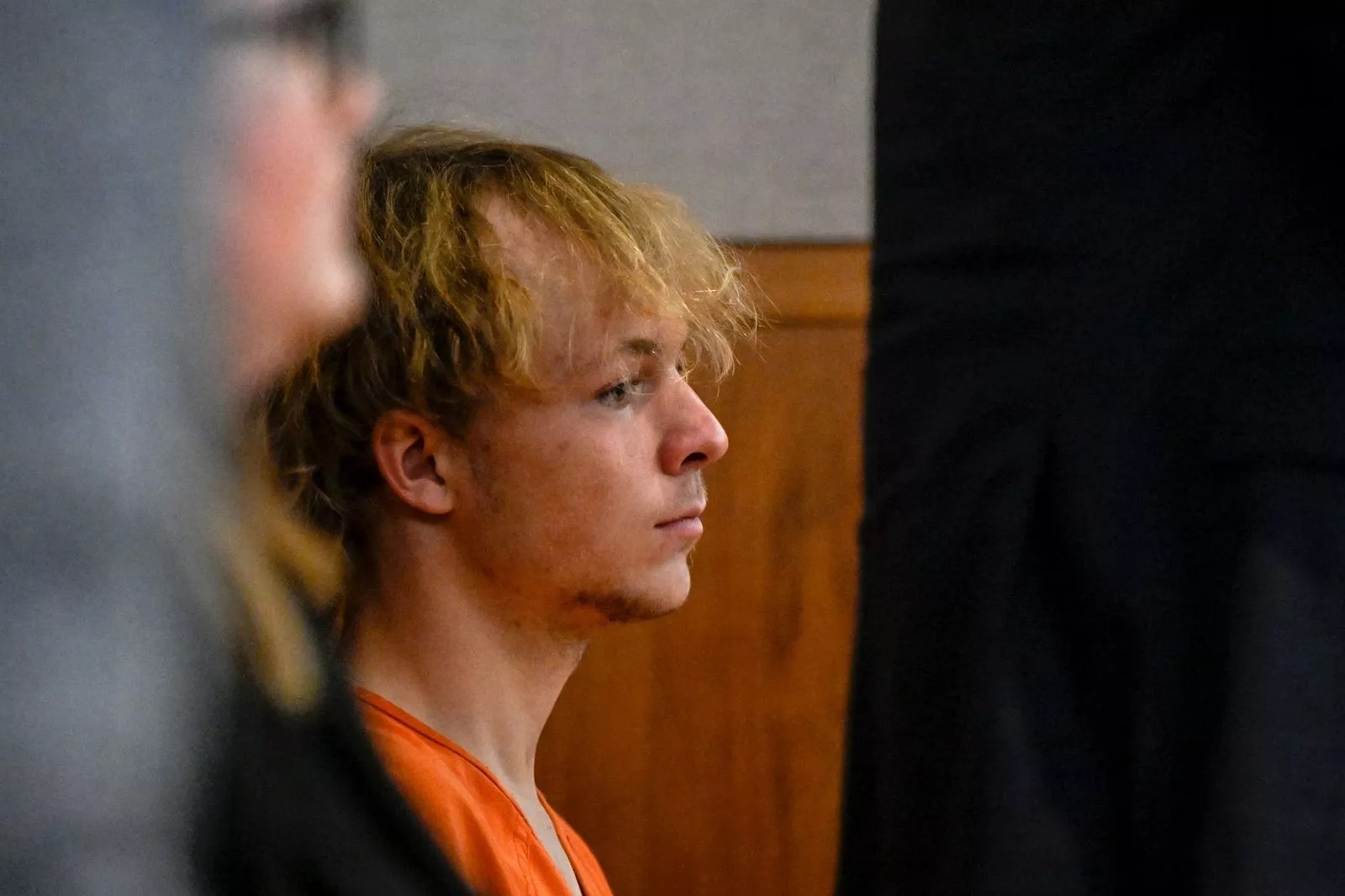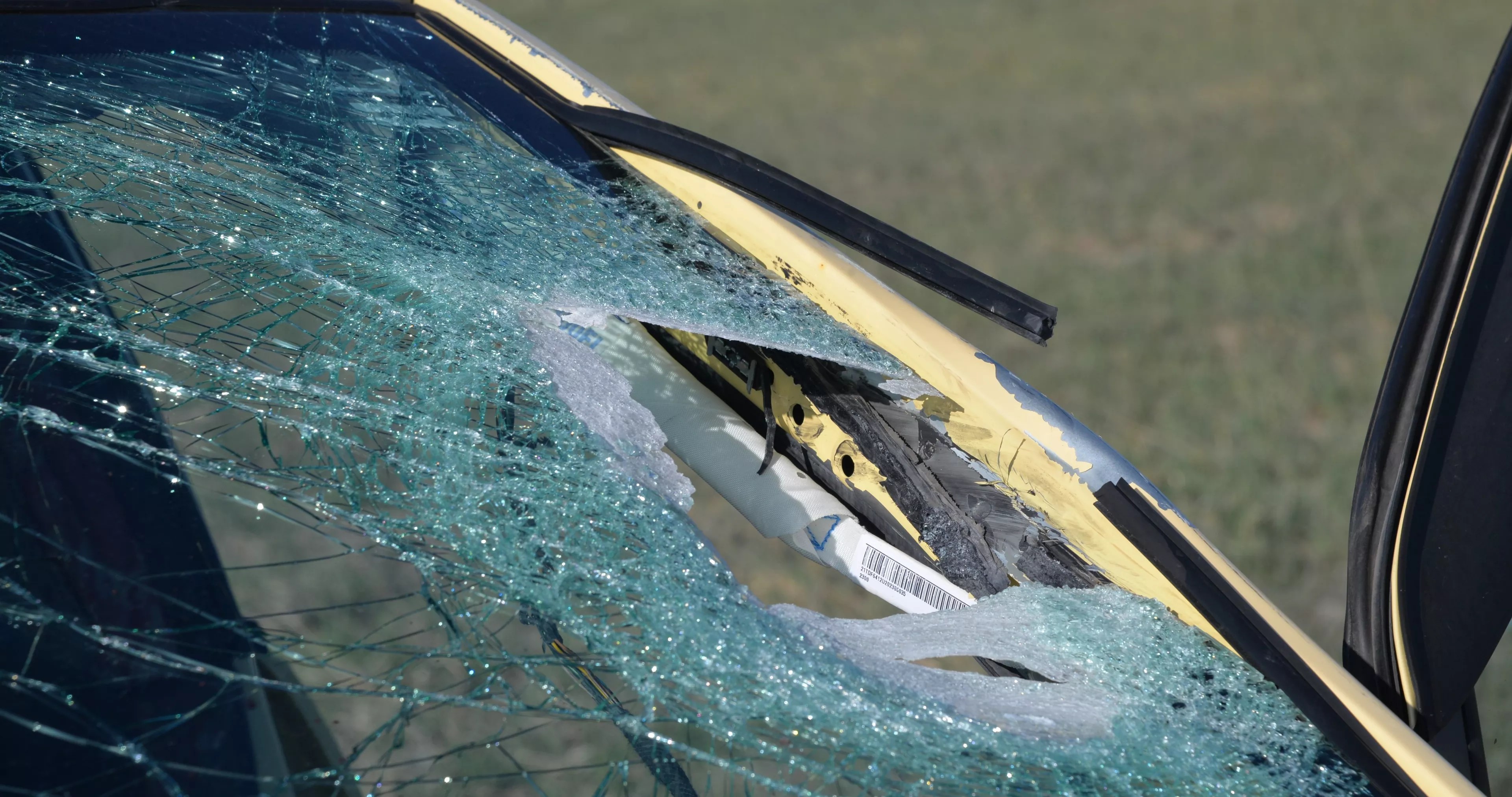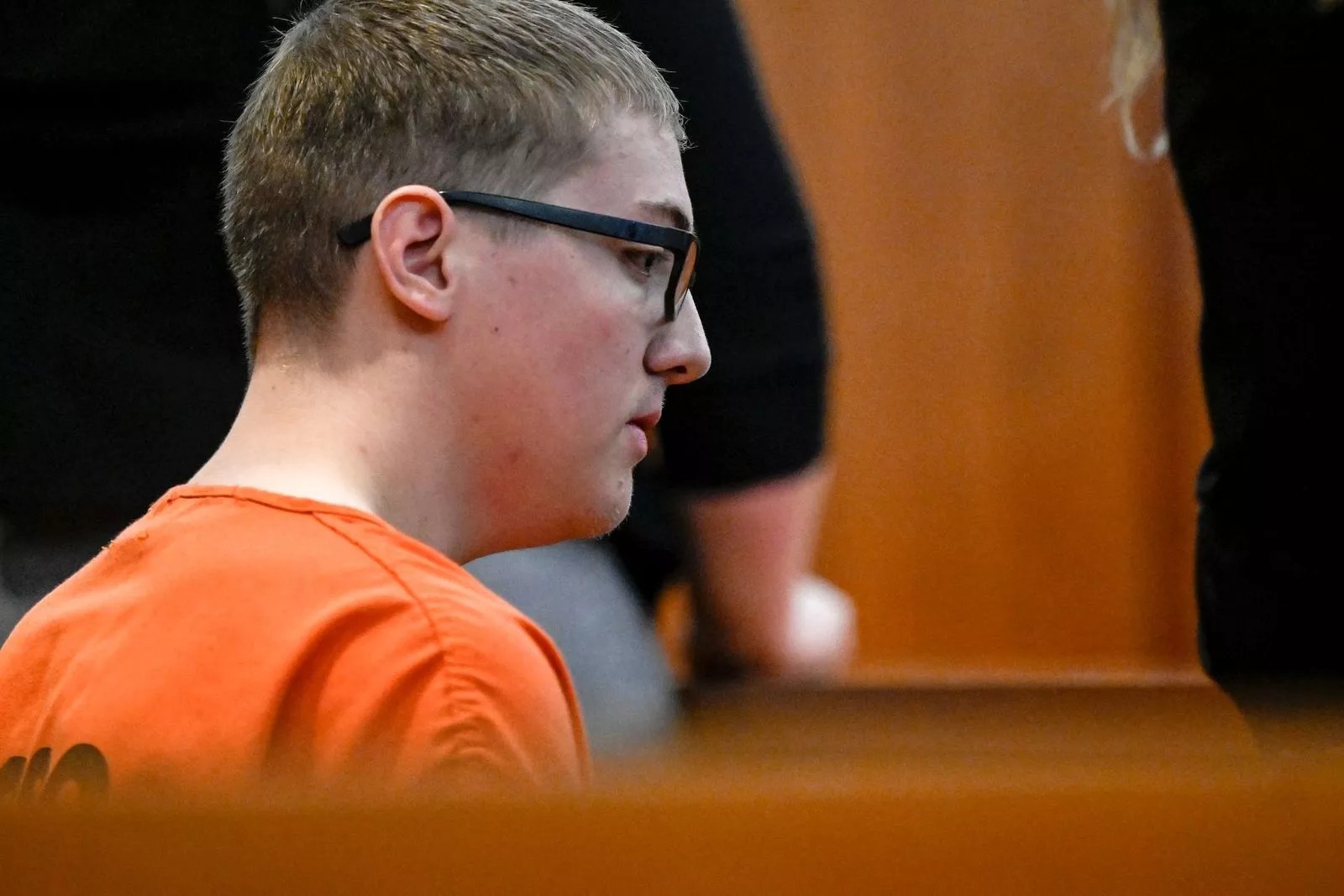
AAron Ontiveroz, The Denver Post

Audio By Carbonatix
Rulings have come down related to court motions filed in the rock-throwing murder case out of Jefferson County, with the judge choosing to side with prosecutors on most of their arguments – except for two very important ones.
Lawyers for nineteen-year-old defendant and alleged ringleader Zachary Kwak filed motions last month to suppress statements and evidence collected during his arrest on April 25, 2023, including his cell phone and comments made about it, claiming the device was obtained improperly by police.
Defense teams for the other two suspects, Nicholas “Mitch” Karol-Chik and Joseph Koenig, have filed similar motions.
Kwak’s attorneys, Leah Maloney and Emily Boehme, argued during a March 27 hearing that there was no probable cause to take Kwak’s phone, because Karol-Chik’s interrogation – during which he accused Kwak of taking a picture with his phone at the scene where the alleged rock-throwers killed twenty-year-old motorist Alexa Bartell – was still going on when Kwak was taken into custody. Kwak’s phone was seized by police at 2:06 a.m., but it wasn’t until 2:34 a.m. that Karol-Chik mentioned the photo details and the phone’s significance.
On Monday, April 15, First Judicial District Judge Christopher Zenisek ruled in favor of the defense to suppress multiple statements made by Kwak about his phone and revealed during a motions hearing that he was still weighing the arguments about the phone seizure, a good sign for Kwak’s team.
“This one is quite involved, and I’m still working on it,” Zenisek admitted. “I’ll issue a written ruling as soon as possible or, failing all else, this will be addressed at the next motions hearing.”
Kwak, Karol-Chik and Koenig have all entered pleas of not guilty. They are accused of riding around in Karol-Chik’s truck on April 19, 2023, throwing landscaping rocks at people’s cars.
At least seven vehicles were targeted by the teens, who were all eighteen at the time. Bartell was killed after the trio tossed a four-to-six-inch rock through her windshield. Kwak, Koenig and Karol-Chik were said to be traveling at a speed of 80 miles per hour when they threw the rock, according to investigators.

Nicholas “Mitch” Karol-Chik, Zachary Kwak and Joseph Koenig allegedly hurled landscaping rocks at motorists during a deadly crime spree last April.
Jefferson County Sheriff’s Office
All three face charges of first-degree murder, attempted first-degree murder, second-degree assault and attempted second-degree assault. Karol-Chik and Koenig have also been charged with attempted first-degree murder and attempted second-degree assault for a separate incident in which they allegedly threw a statue head at a moving car on April 1, 2023, in Arvada. Koenig is charged with four additional counts of attempted murder and second-degree assault in connection with two rock-throwing incidents that happened on February 25, 2023. Those charges were filed in March 2024 and surfaced for the first time in court on April 1, 2024. They are unrelated to the spree.
Kwak has maintained that it was Koenig – who refused to speak with police after his arrest – who threw the stone that killed Bartell. Karol-Chik, however, told police it was Kwak who threw it; he said Koenig was driving and that all three men hurled rocks at cars.
“I want to make it very clear that I did not kill that girl,” Kwak allegedly told investigators during his interrogation. “I did not throw that rock. I don’t know what they told you. I don’t know what you think happened. I did not throw that rock.”
The three young men each successfully requested to have separate trials earlier this year, arguing that it would be too chaotic and confusing for jurors (and a risk to the accused) if they were to be tried as co-defendants. This is because the defense teams all plan to attack the credibility of the other defendants in court.
Attorneys for each of the defendants have filed motions connected to their cell phones, statements made about their cell phones and a “tower dump” procedure that police performed to help catch them.
A “tower dump” is when investigators obtain cell phone data through cell tower records and carrier information. It lets authorities see which numbers have pinged off towers close to where a crime has happened. Terms like “geofencing” and “reverse warrants” are used to describe the ways cops cast a wide data net in order to find patterns and frequented areas.
ZetX – a cell phone processing tool focused on mapping and analytics – was used by JCSO investigators to track down the rock-throwing suspects. Police conducted a records request from AT&T, Verizon and T-Mobile.
There were a total of eleven numbers that hit all four of the towers that authorities found near the locations of the April 19, 2023, rock-throwing incidents. One of the numbers was listed to Koenig’s mother and stuck out to investigators for several reasons.

Defendant Joseph Koenig faces additional counts of attempted murder and assault in connection to separate rock-throwing incidents unrelated to the April 19 spree.
AAron Ontiveroz, The Denver Post
First, it was the only phone that had an owner who lived in the area, according to Kwak’s lawyers and investigators. More importantly, the number was being utilized by a younger individual with a criminal past, Koenig, who was moving at the time of the rock-throwing spree along the same path where the incidents occurred. A phone number belonging to Karol-Chik was also found to have been used in the very same areas.
When authorities received data from Kwak’s phone, however, they found that there was no data available between 10:08 p.m. on April 19, 2023, and 11:04 p.m., according to investigators. The Bartell killing happened at around 10:45 p.m., the affidavit says.
Kwak’s lawyers argued during the March 27 motions hearing that this is ultimately proof of there being “absolutely no information” linking Kwak’s phone to the scene of the crime at the time of his arrest. It wasn’t until Karol-Chik’s accusation about Kwak taking a photo of Bartell’s car during his interrogation that cops found out about the phone connection.
Kwak’s attorneys claimed in their motions arguments that the Jefferson County Sheriff’s Office had “unlawfully seized” Kwak at his home without probable cause, and that his subsequent statements and phone that was handed over to police must be “suppressed as fruits of an illegal seizure.” They claimed that Kwak’s statements while subjected to JCSO interrogation must be suppressed due to a “valid” Miranda Rights waiver not being obtained and Kwak being too tired to give a confirmation. They also argued that statements made to police about his phone and its location before he was read his Miranda Rights should be suppressed, since the mobile device plays a key role in both the arrest and the prosecution of Kwak.
Kwak’s attorneys claimed he made these “involuntary statements” in response to police questioning during his arrest regarding the whereabouts of his phone. The statements, according to his attorneys, were pre-Miranda and made under duress, leading to Kwak’s phone being improperly seized as a result, absent a warrant.
Judge Zenisek wound up siding with the defense on two very important and specific statements made by Kwak during what were deemed improper interrogations throughout the arrest process. He explained why at the April 15 hearing.
“‘Interrogation’ includes any words or actions on the part of the police other than those normally attended to arrest and custody that the police should know are reasonably likely to elicit an incriminating response,” Zenisek explained. “[During Kwak’s arrest], an investigator asks, ‘Where’s your phone at, man?’ Mr. Kwak responds, ‘I don’t know.’ Question: ‘You don’t know?’ Answer: ‘Somewhere.’ Then the investigator states, ‘Just want to make sure you have some way to contact them.’ And right about this time, and it’s some overlapping dialogue, Mr. Kwak conveys to his mom on the side of his bed, indicating the location of the phone.”
According to Zenisek, this exchange is an example of an interrogation and line of questioning that is likely to elicit an incriminating response. “It is asking about the location of what they know is likely to be key evidence,” he said.

Alexa Bartell’s smashed windshield after she was allegedly targeted by Kwak, Karol-Chik and Koenig on April 19, 2023.
Jefferson County Sheriff’s Office
After being transported to the JCSO station for further questioning, Kwak was once again asked about his cell phone before being read his Miranda Rights.
“At the inception of the interview, Mr. Kwak is asked his name, date of birth,” Zenisek noted, adding that these are standard booking questions and are permissive to ask pre-Miranda. “Then there’s a question of, ‘I’d imagine you got your own cell phone.’ Answer: ‘I do.'”
According to Zenisek, the investigator asks Kwak, “What’s the number?”
“In the court’s view, these questions about the phone are reasonably likely to elicit an incriminating response. They are interrogation, so those, too, must be suppressed,” Zenisek said. “This one’s a close call, because the court acknowledges in many circumstances that asking about a phone number could be general background information, but in this circumstance, it’s key to the investigation, and the court does determine it is interrogation.”
Since investigators had no information regarding Kwak’s alleged use of a phone related to the charges, his lawyers argued that it was “illegally seized absent a warrant,” which wasn’t applied for until April 27 – two days after he was busted, according to police. A warrant for Kwak’s arrest also had not yet been applied for at the time he was taken into custody.
Prosecutors argue that law enforcement had probable cause to arrest Kwak because they had information that certain crimes had been committed, including Bartell’s murder, and they were able to connect Kwak through statements from an acquaintance named Joseph Bopp, who identified Kwak as “Zach” and as someone who was directly involved in the rock-throwing incidents. Karol-Chik also identified Kwak by full name at around 1:32 a.m. on April 26 and where Kwak lived, according to police.
Kwak allegedly identified himself when authorities arrived at his house and walked outside voluntarily before his arrest.
Zenisek wound up siding with the prosecution on this argument and the other motions pertaining to Kwak’s tiredness during his interrogation, such as the probable cause to arrest him, the voluntary nature of statements made during his arrest and interrogation, and the “duress and deception” claims.
Still, being on the fence about the phone seizure and ruling in favor of suppressing statements related to Kwak’s cell phone can be considered a win for the defense.
Prosecutors said during Kwak’s March 27 motions hearing that the seizure of the phone was done properly because authorities eventually obtained a warrant to search Kwak’s phone on April 27, and that cures any “improper seizure” of the phone at the time. The defense noted in its arguments that law enforcement must still have probable cause at the time to seize it.
It was through discovery that Kwak’s lawyers found out there was no warrant for the phone before eventually learning the timing of Karol-Chik’s interview.

Defendant Nicholas “Mitch” Karol-Chik (seen above) claims it was Zachary Kwak who threw the rock that killed Alexa Bartell.
AAron Ontiveroz, The Denver Post
Durin Kwak’s arrest, one of the investigators can be heard asking him on body-cam footage, “Do you have a phone inside?” He then asks Kwak, “Can he grab it for you?” in reference to Kwak’s dad retrieving the phone.
Boehme and Maloney pointed out during the March 27 hearing how it was the teen’s parents who ultimately complied with police and handed over Kwak’s phone, and not Kwak himself. The parents never once asked their son whether he wanted to give the phone over without a warrant, the lawyers said.
“We need shoes for him, shirt for him and a phone for him,” an investigator told Kwak’s parents, according to the body-cam footage.
When Kwak was asked about where his phone was by the police, he initially told them that he did not know. Kwak was then asked by his mom where the phone was, to which he responded, “It’s by my bed.” His lawyers argued that Kwak never gave consent to give the phone to police and wasn’t giving consent to search it.
After his mother found the phone, she allegedly gave it to Kwak’s father, who came to the door with the device and handed it over to the authorities.
Prosecutors argued that Kwak’s instructions to his mother to retrieve his phone were an acknowledgment of “implied consent” to its seizure. They noted how he was not saying “no” in statements or in action.
For the duress claims, Kwak’s lawyers pointed out how a JCSO investigator was caught on his body cam telling Kwak’s parents that he would have no way to contact them without handing over his cell phone.
The defense argued that this is relevant to the issue of consent because, in order to prove that Kwak consented to the phone seizure, there must no “objective evidence” of coercion, duress, deception, promises, threats, intrusive conduct or other undue influence by the police, which critically impair a defendant’s judgment. Kwak’s lawyers said that given the totality of the circumstances – Kwak hearing that he’d have no way to contact his parents other than giving up his phone and that not being accurate – contributed to duress and deception, which is not allowed to be used if law enforcement is attempting to seize something like a phone.
Zenisek said at the April 15 hearing that he would work to issue a written ruling on the phone seizure before the next motions hearing on May 7. “My goal…is to write something and get that out,” he said.
Karol-Chik is due back in court on April 25 for an undisclosed hearing, and all three defendants are due back on May 7 for preliminary hearings.